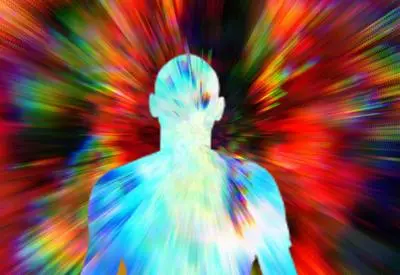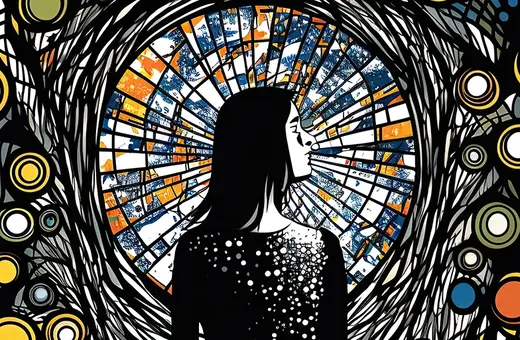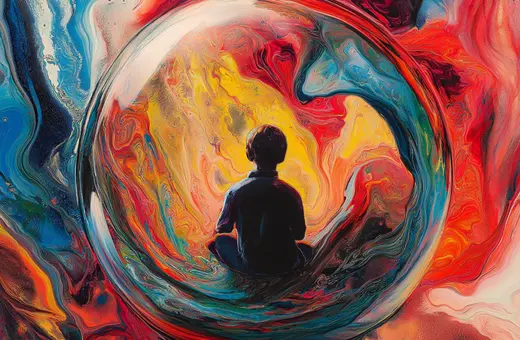There is a psychedelic revolution happening. An increasing number of studies are promising a transformation of mental health through their controlled use. What is still unclear is what exactly the nature of that psychedelic experience is, and what makes it so powerful. Sceptics are too quick to dismiss the whole thing as a hallucination, merely a disturbance of the brain’s chemistry. But a closer look at the philosophy of consciousness seems to suggest otherwise, writes Ricky Williamson.
I am currently sitting in an airport on an 8-hour lay-over. The next plane was just cancelled, adding an extra 4-hour delay. A pretty good metaphor for base reality. Is it possible to experience another world? Something transcendent? Is it possible to experience something outside normal human experience? Will I ever get on the plane?
By transcendent here I mean something beyond either our normal, consensus reality, or something beyond the boundaries of our self. An experience is transcendent then if it somehow takes us out of this world, or out of ourselves.
It’s unquestionable that psychedelics offer an apparent experience of transcendence. The question is, do they offer the real deal; are psychedelic experiences truly transcendent? Do they allow us to escape, if only momentarily, the bounds of material reality, and our own minds? Or is what passes as an experience of the profound, just a mesmerising lightshow created by the brain, a hallucination? One that can be life-changing, awe-inspiring and blissful, but one that remains very much anchored in this world, and one that remains a product of this mind?
 SUGGESTED READING
Transcending the self and finding reality
By John Vervaeke
SUGGESTED READING
Transcending the self and finding reality
By John Vervaeke
Sceptics and Believers
Sceptics may be wondering why this is a question at all. Surely psychedelics only offer hallucinations, the result of what is essentially brain-poisoning – there’s nothing transcendent about that. All there is going on is a chemical imbalance being created in the brain. But this physicalist approach goes against the scientific work being done by the likes of Kings College London and Johns Hopkins that suggests it is the apparent experience of transcendence, rather than the brain chemistry changes, which is having an impact on the positive mental health outcomes reported in these studies.
Furthermore, to call something a ‘hallucination’ does little to tell us of the reality of what is being hallucinated, especially given the popular line spun by neuroscientists today that even the empirical reality we perceive is itself a ‘hallucination created by the brain’. Finally, whether we think these psychedelic experiences are worth exploring or not, what is certain is that many who have them rate them in the top 5 most meaningful experiences of their lives – up there with the birth of a child, or death of a parent. An experience that’s valued so highly is surely worth exploring – even if we do think it’s ultimately all smoke and mirrors.
To lay my cards on the table, I have had what at least seemed like a transcendent experience after taking psychedelics. The famous white light. Bliss. Cosmic laughter. Even two Beings – which matched the two Beings described by Carl Jung and John C Lily in their accounts of their (seemingly) transcendent experiences.





















Join the conversation